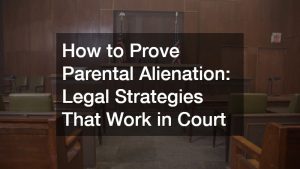Whether you’re an employee or an employer, you should be knowledgeable about the laws concerning business and the workplace. Laws can be deemed as standards or guides for businesses to run smoothly and professionals to know their rights. When a business fails to comply with state-mandated regulations, fines, penalties, and even lawsuits can be imposed.
Though disseminating legal information falls on the human resource department, startups and small companies that don’t have one do not have such luxury, making understanding labor laws also your responsibility if you’re a member of the workforce.
Right to Unionize
The most common solution employees resort to whenever they have to voice out grievances or opinions to their company’s management is through forming a union with other employees so they can work together to speak about their interests. Voicing out their opinions is sometimes done through an official letter or meeting with company representatives, and these are mostly peaceful and produce favorable results for both parties.
During such occasions, employers neither have the right to restrain their employees nor can they unlawfully coerce personnel to concede without any attempts at meeting their demands and conditions.
Protection From Employment Discrimination
Quite prevalent in the workplace, persons with disabilities can experience discrimination, especially during the hiring process. This is largely caused by the misconception that disabled people need more help in the workplace which will disrupt business operations. Due to the same reason, there is also a law created to protect veterans, so they can undergo the same, equal application process, abled people go through.
This labor law aims to protect disadvantaged professionals, so they enjoy the same work privileges, get equal benefits, and confidently apply for the position they want considering their set of skills.
Employee Misclassification
Employees work extra hours and take added shifts because it is a way for them to earn more than their basic salary. According to the Fair Labor Standards Act, an employee who works more than forty hours per week is eligible for overtime pay. This ensures that employee labor is well compensated for especially since paying overtime can cause companies additional payroll taxes and other related expenses, which is why some businesses purposely misclassify workers. With this law, professionals are paid properly per their employment status and classification.
Medical and Employee Leave
Accidents and emergencies cannot be foreseen, and these conditions can disrupt a day of an employee. When faced with unfortunate circumstances that are serious enough for an employee to fail to go to work, they have the liberty to use their allotted medical and employee leaves. What some do not know is that employers cannot prevent their personnel from filing a leave especially when requested in the light of serious matters. If you get into a serious accident and are unable to work, you are still protected by up to twelve weeks or even twelve months of job-protected, unpaid leaves. For this, affected employees can file social security claims to get the kind of assistance they require.
Whistleblower Protection Program
Similar to an employees’ right to unionize, the whistleblower protection program is also made to encourage professionals to be confident in speaking out about the inconsistencies and violations of their management. It strives to back an employee’s claim through fair and equal investigations while guaranteeing that it will not in any way affect their position and status in the company.
Workplace Safety

Dealing with hazardous chemicals especially when you work in manufacturing or the chemical industry is sometimes inevitable, but the tasks focused on handling chemicals are of course done with the proper protective gear. To ensure the safety of employees who are working in hazardous environments, the Occupational Safety and Health Act aims to provide workers with a safe workplace by implementing a set of health and safety standards, that when violated, have the authority to fine or penalize companies.
Child Labor
It is not uncommon for businesses to accept underaged applicants as part-time workers or interns, in a way, they are even helping out young people prepare for adult life and earn money to finance their schooling. Considering their lack of experience, minors are extremely susceptible to dangerous situations that can affect their education and well-being.
To avoid this, child labor laws are drafted to ensure their safety in the workplace. This law features a list of professions minors can apply for, and if they are aged fourteen below, requires them to submit proof of consent from their parents or guardians. The number of hours underaged employees render per shift also varies according to their age, but the most important thing to remember is that their work should not interfere with their education.
To ensure a peaceful workplace and seamless business operation, employers and employees should know every professional’s rights and take the time and effort to implement them.






